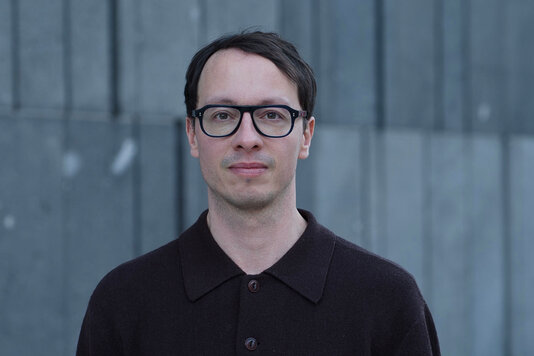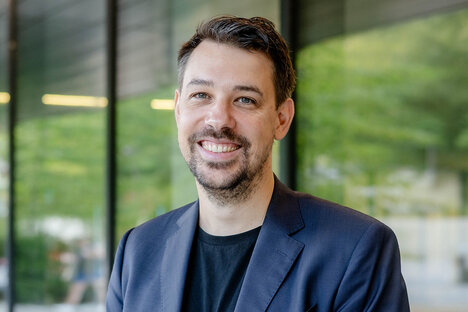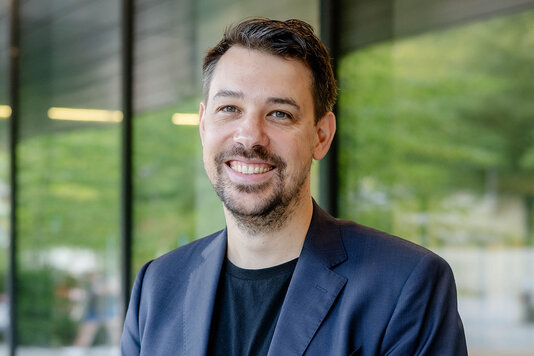
This symposium focusses on chatbots in talk therapy. Developers, sociologists and philosophers discuss the sociotechnical imaginaries, design assumptions and challenges that guide the creation of these chatbots. How can communication between humans and chatbots be designed to promote mental health and well-being?

Chatbots are changing the nature of what we think of as communication. Advances in artificial intelligence (AI) applications for mental healthcare offer hope for improving the accessibility of care and alleviating financial pressures on healthcare systems. Bringing together developers, sociologists and philosophers, this symposium focusses on how chatbots are being applied in talk therapy. They use natural language processing and conversational interfaces to provide immediate responses to mental health needs and to identify users’ moods and symptoms. Psychotherapeutic treatment methods are implemented in chatbots, such as Wysa or Woebot, to help individuals develop new skills and recognise emotions, thoughts, and behaviours to manage mental health problems.
This raises many questions regarding its implications. Can ubiquitous access to chatbots increase dependency, or rather remove barriers and promote equity? Can anthropomorphising lead to too much trust in chatbots and thus an overly strong influence on users? The symposium aims to discuss the sociotechnical imaginaries, design assumptions and challenges that guide the creation of these chatbots. Drawing on practical experiences of design and development and on empirical evidence of chatbot use, it provides a unique space for developing a differentiated understanding of the communicative relationship between humans and chatbots. A framework for human-chatbot communication based on the social sciences and humanities can provide important avenues for research and development and help explore how communication can be designed to avoid harm and promote mental health and well-being.
The symposium is co-organised by Benjamin Marent (University of Sussex (UK); Digital Technology at Work), who is currently a Senior Fellow at the College, and Sebastian Merkel (Ruhr-University Bochum; Social Sciences - Health and E-Health).
Arrival and coffee
Welcome and Introduction
Benjamin Marent, University of Sussex (UK) & College for Social Sciences and Humanities
Sebastian Merkel, Ruhr University Bochum (Germany)
Between an ethos of care, an ethic of access, and a logic of capital: configuring digital mental health
Martyn Pickersgill, University of Edinburgh (UK)
Human-Chatbot-Interaction from a philosophical perspective – fictionalist and realist accounts
Eva Weber-Guskar, Ruhr-University Bochum (Germany)
Coffee break
Practice pitch: Clare&me, a startup company from Berlin on the mission to digitise mental health and close the gap between the demand and supply of mental health support
Lea Maria Schäfer, Clare&me, Berlin (Germany)
Sociotechnical imaginaries held by developers of mental health chatbots
Sebastian Merkel, Ruhr-University Bochum (Germany)
Lunch
Interactions with LLM-powered chatbots: Technical foundations and interactional dynamics
Ole Pütz, University of Bielefeld (Germany)
Human-AI communication in mental health: Sociological implications of chatbots as therapeutic agents
Benjamin Marent, University of Sussex (UK)
Coffee break
Practice Pitch: Developing mental health chatbots for young people – insights from the Cady project
Stefan Lüttke, University of Greifswald (Germany)
Digital mental health innovation: key points for a future research agenda
Cornelius Schubert, TU Dortmund University (Germany)
Closing remarks
 ©
© Felice Drott
©
© Felice Drott
Assoc. Prof. Benjamin Marent
University of Sussex (UK) | Digital Technology at Work
Benjamin Marent is Associate Professor in Digital Technology at Work at the University of Sussex Business School, UK. His research investigates and informs the digital transformation of health care, with a current focus on telemedicine and the application of conversational artificial intelligence (AI). These technologies are surrounded by promising expectations to ensure the sustainability of care for the growing number of people with chronic conditions. As health sociologist, Benjamin Marent asks if and how “care” happens when communicative encounters between health professionals and their clients are mediated by technology (as in the case of telemedicine) or when the communicative other is no longer a human professional but an artificial agent (as in the case of conversational AI).
Alongside this research, Benjamin Marent has co-edited the Sociology of Health & Illness special issue ‘Digital Health: Sociological Perspectives’ (2019) and is currently editing the De Gruyter Handbook of Digital Health and Society (forthcoming 2025) and the Sociology of Health & Illness special issue ‘Algorithms in Health and Medicine: Sociological Inquiries into Current Disruptions and Future Imaginaries’ (eds. Marent, Henwood, Petersen, Neves, forthcoming 2026). He serves on the editorial boards of the British Sociological Association's flagship journal Sociology and Sociology of Health & Illness, and he is an Associate Fellow of the Digital Future at Work Research Centre (‘Digit’).
Website
 ©
© Ruhr-Universität Bochum
©
© Ruhr-Universität Bochum
Prof. Sebastian Merkel
Ruhr University Bochum | Social Sciences - Health and E-Health
 ©
© Ruhr-Universität Bochum
©
© Ruhr-Universität Bochum
Prof. Sebastian Merkel
Ruhr University Bochum | Social Sciences - Health and E-Health
Sebastian Merkel is a junior professor of ‘Health and E-Health’ at Ruhr University Bochum, Faculty of Social Sciences. Previously, he worked at the Institute for Work and Technology (IAT) for ten years, where he has led the research department ‘Health Industries and Quality of Life’ for two years. Sebastian Merkel has been involved in several national and international research projects studying social implications of (digital) technologies in the field of health and care. His research activities follow an interdisciplinary approach, combining theories and methods from medical sociology, science and technology studies, health economics, and public health. A central theme of his research is participatory approaches to technology development.
Website
https://www.sowi.ruhr-uni-bochum.de/ehealth/team/merkel.html.en